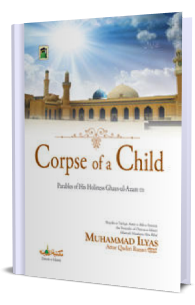
The sayings of our righteous predecessors رَحِمَهُمُ اللہُ تَعَالٰی provide us with guidance in various walks of life. These sacred personalities went through the ups and downs of this world in their long life and normally spent it having religious awareness. Therefore, their sayings are based on their experience of several years. Let’s read the sayings of Ghaus-e-A’zam رَحْمَةُ اللہِ تَعَالٰی عَلَيْه and learn from them:
1. Four types of people
There are four types of people:
1. Those who neither possess a tongue (which they may use to speak something wise) nor a heart[1]; such ignorant, heedless, foolish, and despicable people do not have any dignity and honour in the court of Allah Almighty. Such people are like chaff. It is necessary to avoid the company of such people. However, if you are an Islamic scholar and a preacher conveying the “call towards righteousness”, do join their company, invite them towards the obedience to Allah Almighty and make them feel fear of sins. If you do so, you will be considered as a Mujahid. The Holy Rasool صَلَّى اللہُ تَعَالٰى عَلَيْهِ وَاٰلِهٖ وَسَلَّم has stated: If Allah Almighty guides anyone through you, it is better for you than the fact that you possess red camels. (Sahih Muslim, pp. 1007, Hadees 6223)
2. The second type consists of the people who do possess a tongue, but do not possess a heart. They carry out an extremely intellectual conversation that is full of wisdom to advise others about knowledge and acting upon it, but do not act upon it themselves. They call others towards Allah Almighty but they themselves go away from Him. They mention the evils of backbiting but they themselves remain indulged in it. They pretend to be pious in front of people but declare a war against Allah Almighty by committing grave sins in seclusion. Such people are actually wolves in the guise of humans. Stay away from such people and seek refuge with Allah from their evil.
3. The third type consists of such people who have a heart but not a tongue (i.e. their heart is enlightened with knowledge and wisdom but it is not permitted to reveal the knowledge and wisdom. In fact, they have adopted complete silence so that they remain safe from socialising and conversing with people). These are pious and ascetic people. Allah Almighty has concealed them from people and covered them. Moreover, Allah Almighty has made them aware of the shortcomings of their Nafs and has enlightened their heart by making them aware of the minute details [harms] of arrogance and ostentation. They have become certain that salvation lies only in silence and seclusion. Do adopt the company of such people and serve them. اِنْ شَـآءَ اللہ عَزَّوَجَلَّ! Allah Almighty will include you also among His righteous people.
4. The fourth type consists of those people who possess both, a tongue and a heart. Such people are aware of Allah Almighty and His signs. Allah Almighty has informed them of those secrets that are concealed from other people and they have the rank of being the successor of Ambiya and Mursaleen عَـلَيْـهِمُ الـصَّلٰوةُ وَالـسَّلَام. These noble personalities have such a high rank above which there is only the rank of Nubuwwah.
I have mentioned all the four types of people before you. If you are a contemplative and farsighted person, you should ponder over it. May Allah Almighty give us Taufeeq to carry out such deeds which are beloved by Him. (Sharh Futooh-ul-Ghayb – translated, pp. 356; summarised)
2. Pay attention to Faraaid before Nawafil
Saying of Ghaus-e-A’zam رَحْمَةُ اللہِ تَعَالٰی عَلَيْه: A believer should first fulfil his Faraaid [obligatory acts] and Wajibat [compulsory acts]. Then he should get engaged in Sunnat-e-Muakkadah, and then he should pay attention to Nawafil and other virtuous acts. It is foolishness and arrogance to get engaged in Sunnahs and Nawafil without fulfilling Faraaid. If one carries out Sunnahs and Nawafil before [fulfilling] Faraaid, they will not be accepted. In fact, he will be disgraced. Such person’s example is like a man who has been appointed by a king to serve him, but the person leaves him and gets engaged in serving his slave. (Sharh Futooh-ul-Ghayb – translated, pp. 511)
3. Condemnation of sleeping in excess
Ghaus-e-Pak رَحْمَةُ اللہِ تَعَالٰی عَلَيْه has said: The one who prefers sleeping to [the state of] wakefulness, prefers something extremely insignificant and imperfect. As sleep is the sister of death, he wants to become unaware of all the matters and resemble the deceased. Allah Almighty is free from sleep because He عَزَّوَجَلَّ is free from every defect. Angels do not sleep either because of being close to the Divine court. Moreover, sleep will not overcome the dwellers of Paradise either. All the goodness lies in wakefulness, and all the evils and unawareness from matters lie in sleep. The one who remains engaged in eating, drinking and sleeping more than his need and just for desire, will miss out on a lot of goodness. (Sharh Futooh-ul-Ghayb – translated, pp. 518; summarised)
Din lahw mayn khona tujhay, shab subh tak sona tujhay
Sharm-e-Nabi khauf-e-Khuda, yeh bhi nahin woh bhi nahin
4. Persuasion of making Du’a
Ghaus-e-A’zam رَحْمَةُ اللہِ تَعَالٰی عَلَيْه has stated: Do not say, ‘I do not make Du’a to Allah Almighty, because if something is destined for me, I will eventually receive it whether I make Du’a or not, and if something is not destined for me, my Du’a cannot make me gain it.’ Make Du’a for whatever you need from the goodness of this world and the Hereafter, provided that it is not Haraam [prohibited] or a cause of Fasaad [discord]; because Allah Almighty has commanded and persuaded you to make Du’a. Allah Almighty has stated: ‘اُدۡعُوۡنِی اَسۡتَجِبۡ لَکُمۡ ؕ’ Translation from Kanz-ul-Iman: Supplicate to Me, I will accept (it).[2] Furthermore, it has been stated: ‘وَ سۡئَلُوا اللّٰہَ مِنۡ فَضۡلِہٖ ؕ’ Translation from Kanz-ul-Iman: And ask Allah for His Benevolence.[3] (Sharh Futooh-ul-Ghayb – translated, pp. 666; summarised)
[1] That is the place of knowledge, Ma’rifat and mystical secrets of recognition of Allah عَزَّوَجَلَّ.
[2] Part 24, Surah Al-Mu`min, Ayah 60
[3] Part 5, Surah An-Nisa, Ayah 32








Comments